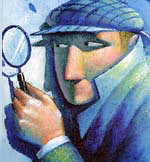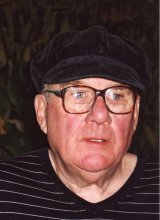
|
|
||||
|
Today is February 16th , 2026
FRAUD ALERT
QUEBECRECOMMENDATIONBooks |
HUMINSKIPAGE 1 of 3Huminski v. Corsones J4Y features a case that deals with the first amendment of the US Constitution. In Canada, it would be the Canadian Charter of Rights and Freedom. In Canada, when the Court wants to do away with a citizens right to Court Access, often time the Crown will wrongfully charge the person with either a simple charge of uttering a threat and/or criminal harassment. The Crown prosecutors also use other ruses to keep citizens out of their courtroom, such as and not limited to, having sheriffs trying to intimidate citizens, by doing searches of their personal property. David Lindsay, a self-litigant, and one who fights fervently for his constitutional rights, disagrees with the way the British Columbia Provincial Sheriffs carry out their responsibility to provide security in courthouses. Mr. Lindsay wished to challenge the constitutional validity of the legislative regime that empowers and governs the way the Sheriffs act when carrying out that power. He wanted the court to find that the Sheriffs had acted in criminal contempt by denying him access to various courthouses in the Province. Mr. Lindsay continues to try and obtain relief from the Courts in Canada, however unlike the Courts in the USA wherein justice sometimes is rendered, the Courts in this country rarely give equity to average citizens and when it does, it is for small amounts. Scott Huminski on the other hand, found relief when he hired a lawyer for his case. His case was tried before a Jury of his peers. In Canada no lawyers would go to bat for a client, who has been denied access to court. First because such a case would not be tried before a Jury, as actions against the Government and/or public servants can only be tried before a Judge alone. Second, in the event damages would be awarded by a judge, the amount would be very small, as such not worth the lawyers time. It is a fact that in Canada, due to the system under the British Monarch, lawyers allegiance is to the Crown and not necessarily to the private citizen, thereby no lawyers would defend someone on such matter, as freedom, justice, and democracy for such principles is either foreign to them, or else lawyers are numb to it. Accordingly, the highest Court in Canada continually rejects points of law that effects peoples fundamental rights, and as a result freedom of speech in Canada is simply a myth that is reserve to only a few. Scott Huminski has finally received justice, something that would rarely occur in Canada for any average citizen, without status. Not only was a settlement of $200,000 given but he recently was awarded by a jury $50,001 against a former Sheriff. Is this to say that the US system with a population of 300 million is better than the system in Canada? In many ways it is and in some ways it is not, as the USA still practice execution. The following story will give the readers an idea of how important it is for people to fight for their rights, especially when authorities, including judges, who are not without flaws, can make wrong decisions that take away peoples lawful rights to access to any courthouses. Charles Levendosky Editorial Page Editor Casper Star-Tribune Tel: 307-234-0338 Fax: 307-234-0338 Columnist New York Times wire Web Master/First Amendment Cyber-Tribune http://w3.trib.com/FACT/ WHEN COURTS SUBVERT LAW TO BANISH A CRITIC (EDITOR'S NOTE: Charles Levendosky, editorial page editor of the Casper (Wyo.) Star-Tribune, has a national reputation for First Amendment commentary. His email address is levendos(AT-sign)trib.com.) By CHARLES LEVENDOSKY c. 2000 Casper (Wyo.) Star-Tribune In Vermont, a number of state judges and one federal judge don't think citizens have the right to attend criminal or civil trials -- at least not those citizens who criticize judges or the decisions they make. Citizen-reporter Scott Huminski has been summarily barred from Vermont courts for his criticisms. His case is a lesson in how those in power, even when they know they are wrong can subvert constitutional guarantees of liberty. Although Huminski transports antiques for a living, for the past three years he has been on a crusade watching how his state courts operate. He attends state court proceedings and then publicizes what he considers misconduct with posters placed in the windows of his Bennington home and in the windows of his van. He also distributes information about the proceedings to attorneys and government officials. One of Huminski's posters contained the headline, "Judge Corsones: Butcher of the Constitution" and beneath it, Huminski listed five reasons why he made that claim. One of the reasons, Huminski charged was that Rutland District Court Judge Nancy Corsones "strips defendants of the right to defense counsel." That poster resulted in him being banished from "all lands and property under the control of the Supreme Court and the Commissioner of Buildings and General Services, including the Rutland District Court, parking areas, and lands." Judge M. Patricia Zimmerman of the Rutland District Court signed this sweeping trespass notice on May 27, 1999. The Bennington County Sheriff's Department served Huminski with the notice. Clearly, Huminski is a gadfly, troubling the plodding steer of state. He may be bothersome, but he isn't a criminal. He has done nothing illegal. He has only exercised his rights as a U.S. citizen. Zimmerman's trespass order is the third one issued against Huminski, but it is the broadest. The first trespass notice, issued only days earlier, prohibited Huminski from entering the Rutland District Court or its parking lot. The second trespass order barred him from entering Corsones' property. If Huminski were to even park his van in the parking lot of a Vermont court, he could be arrested immediately. The trespass notices were filed for one reason only -- Huminski criticized a state judge and her decisions. Law enforcement officials make no claim that Huminski was disruptive, a public nuisance, or interfered with the administration of justice. He was quiet and attentive while in the courtroom and the courthouse. He neither picketed the courthouse, nor engaged in vulgar or obscene expression while there. He simply posted his opinions. The trespass orders have worked. They have kept a citizen-reporter from engaging in public debate about his state courts. Huminski has not been close to a Vermont court for nearly a year. His reporting has been silenced. Instead, Huminski filed a lawsuit in a federal district court against Rutland and Bennington law enforcement officials claiming they have violated the Vermont Constitution and his First Amendment rights to attend and report on court proceedings. He acted as his own attorney. And lost. On Oct. 20, 1999, U.S. District Court Judge J.G. Murtha, apparently blinded by Huminski's harsh criticism of a judge, dismissed his claims. Murtha concluded that Huminski had "failed to demonstrate a clearly established federal right which the defendants violated." Never mind that the U.S. Supreme Court has ruled time and again that the people have a right to criticize government officials. In his decision, Murtha quoted a U.S. Supreme Court case having to do with picketing near a courthouse -- a very narrow decision that has nothing at all to do the facts of Huminski's case. No one asserted that Huminski had picketed the Rutland District Court. He hadn't. The Vermont Constitution, in Article 13 of its Declaration of Rights, states: "That the people have a right to freedom of speech, and of writing and publishing their sentiments, concerning the transactions of government, and therefore the freedom of the press ought not to be restrained." How clear can it be? Courtroom proceedings are "transactions of government." And "the people have a right ... of writing and publishing their sentiments" concerning those transactions. Now, Huminski has Robert Corn-Revere, an experienced and well-respected First Amendment attorney from Washington, D.C., handling his case. They have filed an appeal with the U.S. Second Court of Appeals. According to Corn-Revere, he hopes that his client gets "a clear statement from the Second Circuit that local governmental officials don't have the ability to simply exclude people from the courthouses in the state of Vermont. "More specifically, we would hope to get a ruling that eliminates the ability to simply use mechanisms like trespass law to silence critics of local judges. In short, what we're looking for is a clear declaration from the Second Circuit involving the fundamental First Amendment rights that are at stake in this case in the situation we're presented with here." These Vermont law enforcement officials and judges have the astounding gall to seriously think that they can bar a citizen from the state courts for all time because that citizen criticized a judge. They make no bones about it. In the briefs filed with the court of appeals, the attorneys for the sheriff's department, city law enforcement and city officials baldly state they have such a right. And they note in their briefs that Huminski "has never attempted to enter courthouse property since service of the (trespass) notice, and thus has neither been denied access nor suffered any criminal sanction." The briefs assert, "Huminski has suffered no actual harm." The series of events involving Huminski might be worse than a collusion of arrogance on the part of those in power to silence a critic. Widespread ignorance of the foundation of liberty upon which this nation is built -- especially on the part of judges and law enforcement officials could eventually bring our nation crumbling down -- as if an earthquake had fractured the structural basis of our constitutional values. An earthquake of ignorance. Arrogance or ignorance? That isn't much of a choice. Either way, Huminski has been unfairly and illegally persecuted by the power structure in Vermont. The harm he has suffered, all of us share. The outcome of this case affects us all. More |
LEGAL ABUSE SYNDROME |
||
Justice is a conscience, not a personal conscience but conscience of the whole of the humanity.
Those who clearly recognize the voice of their own conscience usually recognize also the voice of Justice.
Alexander Solzhenitsyn

